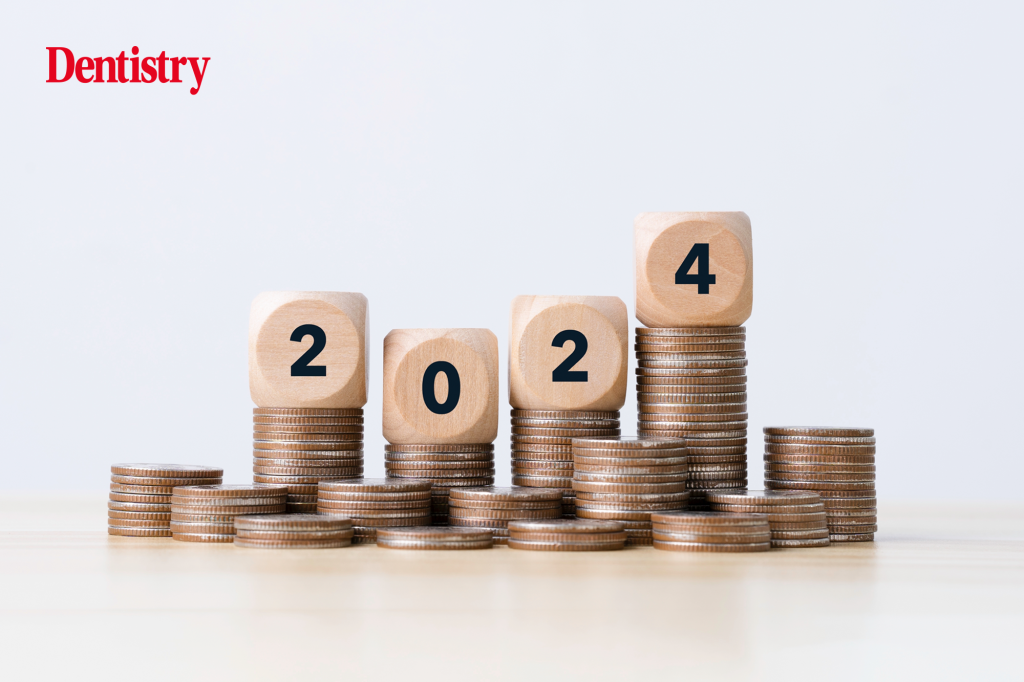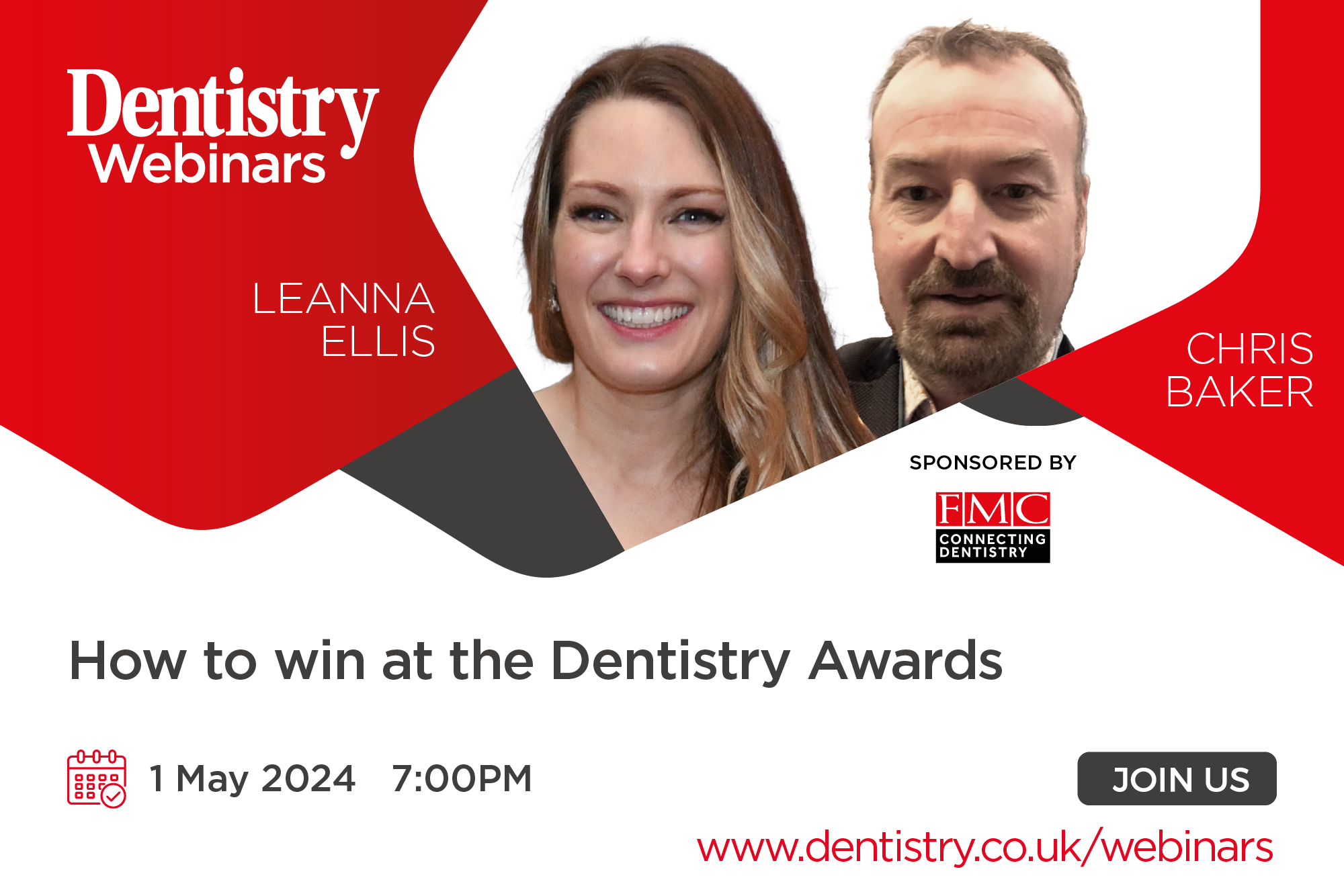
Dental specialist financial adviser Aaron Prested discusses some recent changes and what dentists should be aware of in terms of planning for the financial year ahead.
Some of the changes announced in the spring budget and autumn statement of 2023 are coming into effect now. This and the end of the financial year mean there are some important details for dentists to consider when planning.
Additional ISA allowance
During the spring budget, chancellor of the exchequer Jeremy Hunt announced an additional British ISA allowance of £5,000 for investment in UK companies. The date of when this will be available has not yet been confirmed. This is on top of the existing £20,000 – although it can only be used when invested in UK companies.
This is good news for dentists. It came on top of the ISA reform announced in the 2023 autumn statement applicable from April 2024. Savers are permitted to have multiple subscriptions of the same type of ISA. This allowsing investors to diversify funds across multiple providers in the same tax year.
Capital gains tax (CGT) and dividend tax
The thresholds are set to be halved again in April to £3,000 and £500 respectively. The CGT and dividend allowances were already halved last April, from £12,000 and £2,000 respectively. As a result, people who aren’t used to paying tax on their savings and investments are likely to do so.
The reduction to the dividend allowance from £1,000 to £500 means higher tax bills for investors and dentists who run their own business and pay themselves in dividends. We would highly recommend that any dentist operating a limited company gets advice on the options available. This will limit the impact of these changes as much as possible.
National Insurance (NI) contributions
Part of the government’s pledge to a simpler, fairer tax system during the spring budget included changes to NI Contributions. For employed people a reduction in NI from 10% to 8% to start on 6 April. The average annual pre-tax salary is approximately £34,900 according to government data from March 2024. This means the average employed person would be approximately £450 a year better off.
For the self-employed people in the practice, there was also a 2% reduction of NI from 8% to 6%. However, this makes slightly less difference than for the employed.
Pension allowances
The standard annual pension allowance is the amount that can effectively be paid into a pension in a tax year is £60,000. Or 100% of UK relevant earnings, whichever is the lower figure. The previous allowance was £40,000. Under some circumstances some people may be able to contribute more than £60,000. For example, if they have unused allowances from previous tax years.
Pensions – lifetime allowance (LTA)
The £1,073,100 lifetime allowance was the total limit people could have in their pension pot without facing tax penalties. This was technically abolished last spring, but not everything about this is black and white.
For example, the threshold on how much tax-free cash someone can take from a pension is 25% of the £1,073,100. To give a practical example, if a dentist had a £2 million pension pot, while 25% of that two million pounds is £500,000, the maximum tax-free cash they would be able to take would be £268,275, as this is the limit for tax-free cash. They would no longer be hit with a lifetime allowance charge, as would have happened previously to a pension pot worth £2 million. The change will only affect people who have a pension pot larger than the lifetime allowance of £1,073,100.
However, there are still limits on how much tax-free cash someone can withdraw from their pension. To give an example, if the same client were to take the £268,275 of tax-free cash from their two-million-pound pension pot, they would be left with £1,731,725 of personal pension. If they drew any more of their pension, it would be subject to income tax at their marginal rate. Any income the client chose to draw from this pension plan in the future would be taxed as income tax in the normal way for the pension.
Pension planning and increased earning
Pensions can be used in a very tax efficient way, depending on how your circumstances might change in the year. One important consideration for a dentist for the coming tax year may be an increase in earnings. This might be because they are doing specialist work, increasing their hours or are simply becoming more profitable.
However, it is important to bear in mind that if your earnings go over £100,000, you will start to lose your personal allowance. Making contributions to your pension may be an effective way of reducing your tax bill. You would then get to retain more of your personal allowance.
Any dentist earning between £100,000 and £125,140 may wish to consider the merits of making additional pension contributions. This is because your personal tax-free allowance of £12,570 – the amount of money you can earn before you start to pay tax on it – is withdrawn at a rate of £1 for every £2 of income between these amounts. This can make additional pension funding extremely tax efficient as it effectively reduces the taxable earnings or the income assessable to tax.
Anyone earning above £125,140 is an additional rate taxpayer and will be taxed at 45%. With the annual allowance now being £60,000 a year this creates a tax-efficient opportunity to fund pensions and limit your income tax liability.
Seeking advice
For any dentist earning above £100,000, I would strongly recommend seeking specialist guidance from a dental specialist financial adviser.
The earlier you start planning, the less stressful it is. Trying to do things at the last minute can be stressful, however with good planning and specialist support, there are many ways to effectively plan for the year ahead to ensure that you make the most out of your hard-earned income.
For further financial support and guidance to plan for the year ahead, speak to a specialist financial adviser at Wesleyan Financial Services by booking a no-obligation financial review or calling 0800 316 3784.
Tax treatment depends on individual circumstances and may be subject to change in future. Bear in mind that the value of investments can go down as well as up and you may get back less than you invest.



